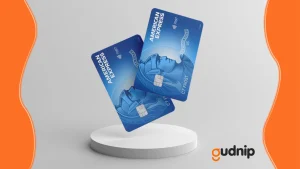Affording unexpected expenses can be tough. Low interest small personal loans offer a solution.
These loans provide an affordable way to cover costs while keeping your budget intact. Learn how they work and how to access them.
Keep reading to discover how you can unlock financial flexibility today!
Understanding Low Interest Small Personal Loans
Understanding low interest small personal loans is essential for making smart financial choices. These loans are designed to help individuals who need quick cash but want to avoid high interest rates. By keeping rates low, borrowers can manage their payments better and save money over time.
Many lenders offer these types of loans, but it’s important to compare options. Low interest loans can provide the funds you need while costing less in the long run. Knowing the terms and conditions can help you choose the best deal for your situation.
Moreover, your credit score plays a big role in securing a low interest rate. A good credit score can open doors to better loan options. By improving your credit history, you can save even more on interest payments and achieve greater financial stability.
Benefits of Low Interest Personal Loans
Low interest personal loans offer many benefits, making them a smart choice for borrowing. One of the biggest advantages is the lower monthly payments. With lower interest rates, you pay less in total during the loan period, which helps you save money.
Another benefit is the flexibility these loans provide. You can use them for various purposes, like consolidating debt, financing a big purchase, or covering unexpected expenses. This allows you to manage your finances without breaking the bank.
Lastly, having a low interest loan can improve your credit score. When you make regular payments on time, it shows lenders you are responsible. This can help you qualify for better rates in the future, enhancing your overall financial health.
How to Qualify for Low Interest Loans
Qualifying for low interest loans starts with understanding your credit score. A higher score can help you get better rates. Make sure to check your score and fix any errors before applying. This step is crucial for securing the best loan options available.
Another important factor is your income. Lenders want to see that you have a steady income to repay the loan. Make sure to gather documents like pay stubs and tax returns to prove your financial stability. Showing a reliable income can greatly increase your chances of approval.
Finally, consider your debt-to-income ratio. This ratio compares your monthly debt payments to your income. Keeping it low makes you more appealing to lenders. You can lower this ratio by paying off some debts or increasing your income, which will help you qualify for low interest loans.
Top Lenders for Low Interest Personal Loans

Finding the right lender for low interest personal loans is key to saving money. Some popular options include online lenders like SoFi and LightStream. These companies often offer competitive rates and flexible repayment terms, making them ideal for many borrowers seeking lower interest rates.
Credit unions can also be great choices for low interest loans. They usually have lower fees and more personalized service. Members of credit unions often enjoy better loan terms than traditional banks, making them a smart option for those looking to save.
Finally, traditional banks like Chase and Wells Fargo provide a range of personal loans. While their rates may not always be the lowest, they often offer easy access and good customer service. Shopping around and comparing offers from various lenders is essential to find the best deal for your situation.
Application Process for Small Personal Loans
The application process for small personal loans is often simple and straightforward. First, you need to gather all necessary documents like proof of income, identification, and your credit history. Having these ready can speed up the application and give lenders a clear view of your financial situation.
Next, you will complete the application form, either online or in person. This form requires details about your finances, including your income and expenses. Be honest and accurate while filling it out to avoid any delays in approval.
After submitting your application, lenders will review your information. They may contact you for more details or clarification. If approved, you will receive an offer outlining the loan amount and terms. Carefully read this offer before accepting, as it will help you understand your repayment obligations.
Tips to Secure Low Interest Rates
To secure low interest rates, start by improving your credit score. Lenders look closely at your credit history when deciding on rates. Pay off debts, make payments on time, and check your credit report for errors. By boosting your score, you can access better loan options.
Another tip is to consider applying with a co-signer. If the co-signer has good credit, it can help lower the interest rate on your loan. This option is especially useful for those who may have limited credit history or a lower credit score.
Lastly, shop around and compare offers from different lenders. Rates can vary widely, so take the time to explore your options. Look for promotions, discounts, and any special offers that might be available. Getting multiple quotes can help you secure the best rate possible.
Common Misconceptions About Personal Loans
One common misconception about personal loans is that they always come with high interest rates. While it is true that some loans may have higher rates, many lenders offer low interest personal loans. By shopping around and comparing options, borrowers can find affordable rates that suit their needs.
Another myth is that personal loans can only be used for emergencies or large purchases. In reality, these loans are versatile and can be used for a variety of reasons. People often use them for debt consolidation, home improvements, or even vacation expenses, giving borrowers the freedom to choose how they spend their money.
Lastly, many believe that applying for a personal loan will hurt their credit score. While it’s true that lenders check your credit, this process is not always damaging. If you make timely payments, a personal loan can actually improve your score over time, demonstrating your ability to manage credit responsibly.





